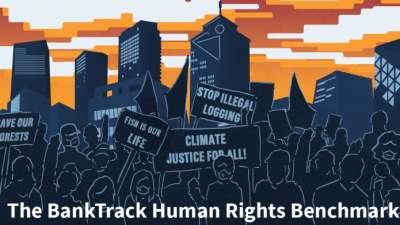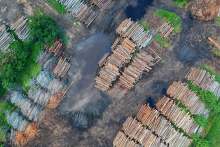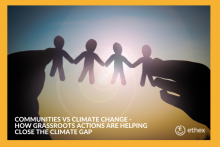As Ethical Consumer readers are no doubt acutely aware, we are in a time of multiple, urgent and overlapping global crises. Accelerating climate chaos and the breakdown of nature impact ever more communities all around the world, threatening their human rights. Meanwhile, the emergence of the Coronavirus wreaked further havoc, with habitat destruction making the rise of new pandemics more likely.
With the urgency of our current situation in mind, BankTrack reformulated its mission at the start of 2022 to challenge banks globally to act urgently and decisively to address four interrelated crises: climate, nature, pandemics, and human rights violations.







